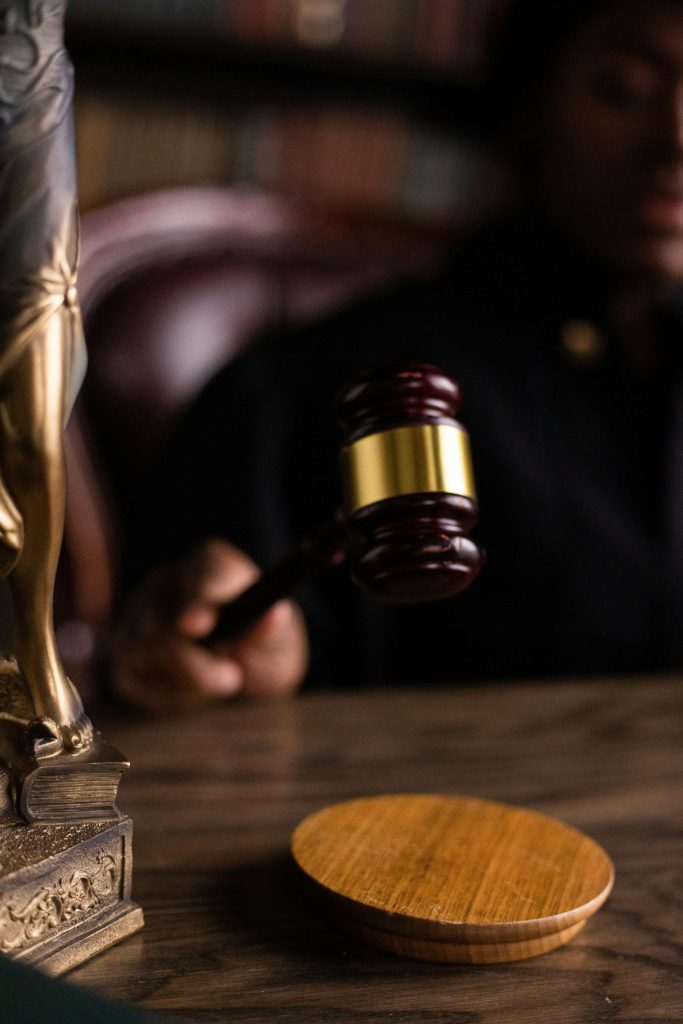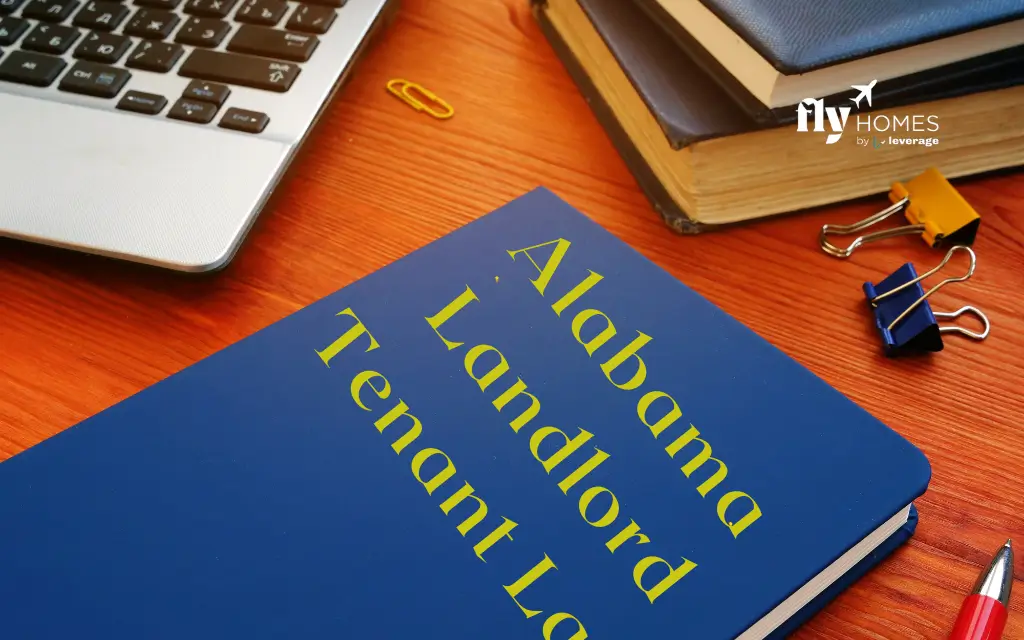Alabama Landlord-Tenant Law: Understanding Alabama’s Landlord-Tenant Law is crucial for both property owners and renters to ensure a smooth rental experience. These laws outline the rights and responsibilities of both parties, covering aspects such as lease agreements, security deposits, eviction procedures, and property maintenance.
Whether you’re a landlord seeking to protect your investment or a tenant looking to understand your legal protections, knowing these laws can help prevent misunderstandings and ensure a smooth rental experience. In this guide, we’ll explore key aspects of Alabama’s landlord-tenant laws to help you navigate rental agreements with confidence.
Table of contents
- What is Alabama Landlord-Tenant Law?
- What General Provisions Are Covered Under the Alabama Landlord-Tenant Law?
- Alabama Landlord-Tenant Law: Rent and Lease
- Rights and Responsibilities of Landlords in Alabama
- Rights and Responsibilities of Tenants in Alabama
- Alabama Landlord-Tenant Law: Security Deposit
- Understanding Lease Agreements in Alabama
- Eviction Under Alabama Landlord-Tenant Law
- FAQs on the Alabama Landlord-Tenant Law
What is Alabama Landlord-Tenant Law?
In Alabama, tenants have the right to stay in their rental home until their lease ends, as long as they follow all the rules in the agreement. However, if a tenant breaks any of these rules, the landlord has the right to evict them. Before doing so, the landlord must provide a written notice informing the tenant about the violation. According to Alabama Landlord-Tenant Law, this notice must be given at least seven days before the eviction process can begin.
What General Provisions Are Covered Under the Alabama Landlord-Tenant Law?
Every rental agreement works best when landlords and tenants understand their rights and responsibilities. In Alabama, the Alabama Uniform Residential Landlord and Tenant Act (AURLTA) sets rules to protect both sides. Here’s what it covers:
- Problems with Leases: Explains what happens if either side breaks the rules.
- Rental Agreements: Clear rules for rent, lease length, and property conditions.
- Unwritten Agreements: Guidelines to protect both sides in verbal agreements.
- Fair Terms: Stops unfair or illegal lease conditions.
- Landlord Duties: Keep the property safe and handle repairs.
- Tenant Duties: Pay rent on time, keep the property clean, and avoid damage.
Alabama Landlord-Tenant Law: Rent and Lease

According to Alabama landlord-tenant law, there are no limits on how much rent a landlord can charge. Rent is usually paid at the beginning of each month, but this can be different if both the landlord and tenant agree. If the tenant pays rent late, the landlord can charge a late fee, but this must be included in the tenancy agreement.
Landlords in Alabama can increase the rent without giving the tenant a notice. However, it is a good idea for landlords to talk to their tenants about any changes in rent before making them official.
Also Read:
Rights and Responsibilities of Landlords in Alabama
The Alabama Landlord-Tenant Law outlines the rights and responsibilities of landlords, ensuring they provide safe living conditions while protecting their interests, covering aspects like rent, maintenance, and eviction. Here are the key rights and responsibilities landlords must follow under Alabama Landlord-Tenant Law.
- Landlord Rights:
- Collect Rent: Landlords have the right to collect rent on time, as agreed in the lease.
- Request a Security Deposit: Landlords can request a security deposit to cover potential damages to the property.
- Pursue Eviction: If a tenant violates the lease terms or breaks the law, landlords can pursue eviction following Alabama’s legal process.
- Landlord Responsibilities:
- Provide Safe and Habitable Rental Units: Landlords must ensure the rental unit meets Alabama’s health and safety standards, providing a livable environment.
- Make Necessary Repairs: Landlords are required to make necessary repairs promptly if a tenant requests them, especially if they affect the health or safety of the tenant.
- Respect Tenant Rights: Landlords must respect tenants’ rights to quiet enjoyment of the property, meaning tenants should not be disturbed without valid reasons (like necessary repairs or inspections).
Rights and Responsibilities of Tenants in Alabama
The Alabama Landlord-Tenant Law also clearly defines the rights and responsibilities of tenants, ensuring they uphold the terms of their lease while protecting their right to a safe and habitable living environment. Here are the key rights and responsibilities landlords must follow under Alabama Landlord-Tenant Law.
Tenant Rights:
- Safe and Well-Maintained Home: Tenants have the right to live in a property that meets Alabama’s health and safety standards.
- Request Repairs: If repairs are needed, tenants can request the landlord to make the repairs, and the landlord must complete them promptly (within 7 days).
- Further Action: If the landlord fails to make necessary repairs within the required time, tenants can take further legal action to address the issue.
Tenant Responsibilities:
- Keep the Property in Good Condition: Tenants are responsible for maintaining the property in good condition and preventing damage.
- Pay Rent on Time: Tenants must pay rent on time, as outlined in the lease agreement.
- Handle Minor Repairs: Tenants must take care of minor repairs as specified in the lease agreement.
- Avoid Disturbing Neighbors: Tenants should ensure their actions do not disturb the peace and quiet of neighbors.
- Clean Premises: If asked by the landlord, tenants must clean the premises within seven days to ensure the property is well-kept.
Alabama Landlord-Tenant Law: Security Deposit
A security deposit is money that the tenant gives to the landlord before moving in. This money is used to cover any damages to the property or unpaid rent. In Alabama, the security deposit cannot be more than one month’s rent. If the tenant has a pet, the landlord can ask for a little more money as a deposit.
According to the Alabama landlord-tenant law, the landlord must return the security deposit within a maximum of 60 days after the tenant moves out. If the landlord doesn’t return the deposit within 60 days, the tenant can ask for legal help to get their money back. The landlord can keep part of the security deposit as well if the tenant did not pay rent or if they caused damage to the property. The landlord must give the tenant a list of what the deposit was used for within 60 days.
Understanding Lease Agreements in Alabama
Tenants can end their lease, but they must give notice to the landlord. The amount of notice depends on how often the rent is paid:
- For weekly leases, tenants must give seven days’ notice.
- For monthly leases, tenants must give 30 days’ notice.
- Tenants can also end the lease early for reasons like the property not being safe if they are in the military, or if the landlord is harassing them.
Eviction Under Alabama Landlord-Tenant Law
Eviction is when a landlord asks a tenant to leave the property because they broke the rules of the rental agreement. According to Alabama landlord-tenant law, a landlord can start the eviction process if:
- The tenant did not pay rent (the tenant gets seven days to pay or quit).
- The tenant breached the lease (the tenant gets 14 days to fix the problem).
- The tenant was involved in criminal activity (the tenant gets seven days’ notice).
- Tenants are protected from being treated unfairly during an eviction.
- If a landlord tries to evict a tenant without a good reason, the tenant can take legal action.
FAQs on the Alabama Landlord-Tenant Law
The Alabama Landlord-Tenant Law is a law that governs the rights and responsibilities of landlords and tenants in Alabama, ensuring fair and legal rental practices.
According to the Alabama Landlord-Tenant Law, a landlord must provide at least seven days’ written notice if they intend to evict a tenant for violating the lease terms, such as failing to pay rent or damaging the property. If the eviction is based on a non-payment of rent, the notice should inform the tenant that they have seven days to pay before eviction proceedings begin.
The Alabama Landlord-Tenant Law outlines several responsibilities for landlords. These include maintaining a safe and habitable living environment, repairing essential systems like plumbing, heating, and electrical, and ensuring that the property meets health and safety codes. Additionally, landlords must return the security deposit within 35 days after the tenant moves out and follow proper procedures for eviction.
A landlord in Alabama must return the security deposit within one month after the tenant moves out. If the deposit is not returned within 60 days, the tenant can seek legal help to recover the money.
If a landlord in Alabama doesn’t make needed repairs, the tenant can take action. This might include hiring someone to fix the issue and then deducting the cost from the rent. The tenant must follow proper legal steps when doing this.
The notice required depends on the type of lease. For weekly leases, tenants must give seven days’ notice. For monthly leases, 30 days’ notice is required. Tenants may also end the lease early if the property is unsafe if they are in the military, or if the landlord is harassing them.
While written agreements are preferred, verbal agreements are also valid in Alabama but can lead to disputes if not clearly defined.
Landlords in Alabama can charge up to one month’s rent as a security deposit, plus additional amounts for pets or special conditions.
Landlords must keep the property in a safe, livable condition and address necessary repairs, while tenants must inform landlords of issues promptly.
Under the Alabama Landlord-Tenant Law, landlords can charge a security deposit that is generally equal to one month’s rent. This deposit serves as a safeguard against potential damages to the property or unpaid rent. Landlords must return the deposit within 35 days after the tenant vacates the property, minus any legitimate deductions for damages or unpaid rent.
Hope you liked reading about Alabama Landlord-Tenant Law. For a stress-free stay during your study abroad adventure, choose Fly Homes. Call 1800572118 to reserve your ideal student accommodation abroad with ease.
Follow Us on Social Media




























